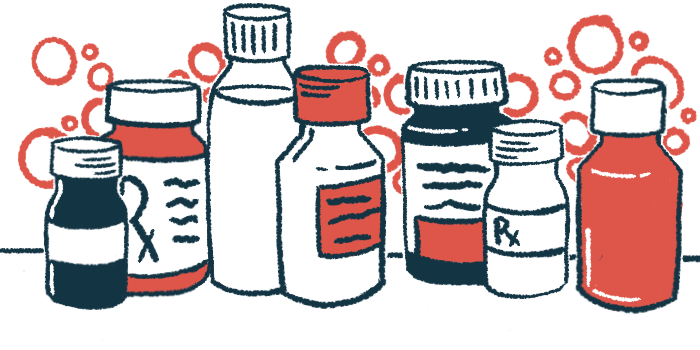High DMT adherence lowers risk of moderate or severe relapse by 25%
Proper use when starting a first DMT also seems crucial, real-world study finds
Written by |

A high level of adherence to disease-modifying therapies (DMTs) is associated with a significant, 25% lower risk of moderate or severe relapses in previously untreated people with multiple sclerosis (MS) compared with those failing to adhere to therapy, according to a study of real-world data in Italy.
High adherence was defined as having access to the medication for at least 80% of days in a given period of time, while nonadherence was having access for fewer than 60% of days.
Findings highlight the need to select a first disease-modifying therapy that aligns not only with patients’ MS severity and stage, but also with their preferences and expectations, so that adherence is as high as possible.
The study, “Impact of adherence to disease-modifying drugs in Multiple Sclerosis: A study on Italian real-world data,” was published in the journal Multiple Sclerosis and Related Disorders.
A number of disease-modifying therapies are approved for MS patients
MS affects the brain and spinal cord, resulting in problems with movement, sensation, and vision. There are a number of treatment options for MS, including medications that can help slow the disease course or control relapses or flares.
However, up to half of the people with MS find it hard to comply with their treatment plan or take their prescribed medications at the right time and dose, complicating treatment outcomes.
To understand how failing to adhere to treatment may impact relapse rates, a team of researchers drew on data from 2,528 MS patients in Northern Italy given a first prescription for a disease-modifying therapy from 2015 through 2019.
Patients had a mean age of 42, and nearly two-thirds (66.5%) were women. Most received a prescription for injectable (44.2%) or oral (44%) medications, with intravenous (into-the-vein) infusion treatments prescribed to the remaining 11.8%.
Researchers noted that, over time, “there was an increase in the use of oral and infusion drugs as the first treatment option, at the expense of injectable drugs.” In particular, a 28% rise in their use was recorded in 2019, nearly all due to increases in prescribed dimethyl fumarate (sold as Tecfidera or generics) and Ocrevus (ocrelizumab).
Over five years of follow-up, a total of 341 (13.5%) patients had at least one moderate or severe relapse, defined as admission to a hospital or emergency department for MS and/or use of corticosteroids at a dose of at least 0.5 grams per day for five days.
Treatment adherence was calculated as the proportion of days covered, meaning the cumulative number of days covered by prescription or a refill divided the number of days of follow-up.
Nonadherence was defined as less than 60% of days covered, while moderate adherence as a proportion of at least 60% but lower than 80%. High adherence was defined as the proportion of days covered being 80% or greater, which is “generally accepted as the optimal adherence level,” the researchers wrote.
Results showed that, compared with nonadherent patients, those with high treatment adherence had a 25% lower risk of experiencing moderate or severe relapses, including after adjusting for age and sex.
A DMT may be ‘particularly protective’ in early treatment periods
An additional analysis looking only at patients with at least 90 days or 180 days of follow-up found a weaker association between DMT adherence and relapses — suggesting that adherence is particularly important during a treatment’s starting period.
Over time, “the protective effect of high adherence seemed to be attenuated, suggesting that adherence to [disease-modifying medications] was particularly protective in the early stages of treatment,” the researchers wrote.
Study findings add “to the evidence base for recommending adherence to treatment with [disease-modifying medications] in clinical practice, a key aspect for reducing moderate or severe relapse rate,” they added.
“Expected adherence to treatment should be carefully addressed by clinicians and [people with MS] when making the important choice of which [disease-modifying therapy] to start treatment with,” the team concluded.
